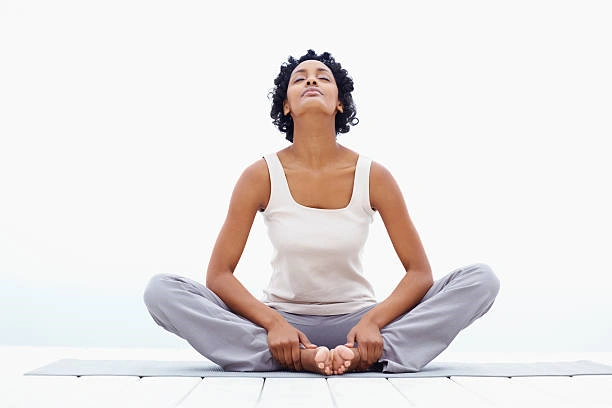Behind Every Excellence Lies Monk-Like Discipline: Discipline Begins with Meditation!
All human suffering is essentially anger directed at our own inadequacies. Discipline, however, is the fundamental way to alleviate life’s pains. In our youth, we might not take it seriously, but as we age, we come to realize: only self-discipline gives us the resilience to face life’s uncertainties.
Exercise is discipline for the body; meditation is discipline for the mind. Through meditation, we engage in a dialogue with our inner self, listen to our true voice, understand our desires, and find a clear path in life. Then, we can pursue our goals unwaveringly.
Are You the Person You Long to Be?
In life, what we wish to become often diverges from what we ultimately become. The benefits of discipline are clear to everyone, but the reason we struggle to be disciplined is that we are not entirely sure what kind of life we truly want. If there is no strong desire to achieve something, few would enjoy restraining themselves. Discipline is never about forcing yourself to do something; it’s about understanding why you want to do it in the first place.
The hardest part of discipline is persistence. Even if you know the person you want to become, sustaining the effort requires a daily battle against your own inertia. Discipline is not an end in itself but a pursuit of a better life. Only when a person aspires to improve do they truly understand the value of discipline.
Neuroscientists have discovered that if you meditate regularly, your brain not only becomes better at meditation but also enhances your self-control, attention, stress management, impulse restraint, and self-awareness. Over time, your brain will develop the “muscles” of discipline.

The More Disciplined You Are, the Freer You Become
Believe it or not, meditation is a powerful tool. It helps you eliminate all external distractions and reconnect with your most authentic inner self. In a chaotic world, you need 10–20 minutes each day to find your true self. Regular meditation will significantly contribute to inner peace and promote physical and mental well-being. Structured meditation can help you make sense of a busy life.
Any activity that achieves a “mindless” state—where consciousness can cease—can be the most suitable form of meditation for a person.
The purpose of discipline is not to make us perfect but to help us become the person we want to be. Only by making discipline a habit can we change our current situation and achieve an upward trajectory in life.
1. Passion-Driven Improvement
The hardest part of accomplishing anything is repeating the process day after day, even when faced with obstacles and without rewards. Only passion can help us overcome difficulties over the years and provide the strongest motivation for continuous effort. Good discipline is driven by passion, and in the process of constant improvement, one can experience the joy of perseverance.
2. Prioritize Important Matters and Focus on Key Tasks
The more you try to cover all bases, the worse you perform at each task.
Discipline is not about doing every little thing well but about prioritizing important matters and resisting the urge to want everything. You need to be able to make choices and focus. Free yourself from trivial tasks and concentrate your efforts at critical points to achieve twice the result with half the effort.

3. Deep Thinking: Live Authentically
Discipline is not about meaningless busyness or self-gratifying effort but about efficient action following deep reflection. Only with the discipline of independent thinking can you recognize the path you should take. By understanding your uniqueness, you can pursue a life truly suited to yourself.
4. Start Immediately: Refuse to Procrastinate
In doing anything, the real time-consuming part is often not the task itself but the delay before taking action.
People who habitually procrastinate will always lag behind those who act immediately.
The difference between ordinary and extraordinary lies in taking that first step right away. By acting immediately, you can steadily move forward in life.
5. Control Emotions: Master Your Reactions
Many failures in life are rooted in excessive emotional responses. Discipline means giving yourself a three-second cooling period when bad emotions arise, allowing you to regain control over your emotions.
When emotions are disciplined, tasks go smoothly; when emotions are under control, life is manageable. Mastering your emotions is key to mastering your destiny.
6. Speak Thoughtfully: Live Happily
The quality of life often lies in one’s speech.
Speaking carelessly can harm both others and oneself. Controlling one’s words is a social skill and a form of discipline that brings contentment in life.
Cultivating disciplined speech can help you avoid many troubles.

7. Maintain a Regular Schedule and Focus on Health
Machines break down if unused; bodies become ill if inactive. Good discipline involves maintaining a regular routine and paying attention to health. Regular exercise not only brings a strong body but also sharpens the mind and lifts the spirit. Someone who exercises regularly will naturally reap the rewards of good health.
8. Set Clear Goals and Move Forward Steadily
We once thought that as long as we kept going without relaxing, that was discipline.
However, this is merely tactical diligence masking strategic laziness.
Understanding how to adjust your pace and run toward a goal is top-level discipline.
A life with goals is a journey; a life without goals is drifting.
Find your direction, set staged goals, and make each step part of a plan to reach your destination smoothly.
9. Long-Term Commitment: Wait for the Bloom
Discipline is not achieved overnight, nor do changes occur instantly. Truly disciplined people do not overestimate the changes one day or one week may bring, nor do they underestimate the progress made over a month or a year. Long-term discipline involves continuous action and a mindset of patiently waiting for results.







